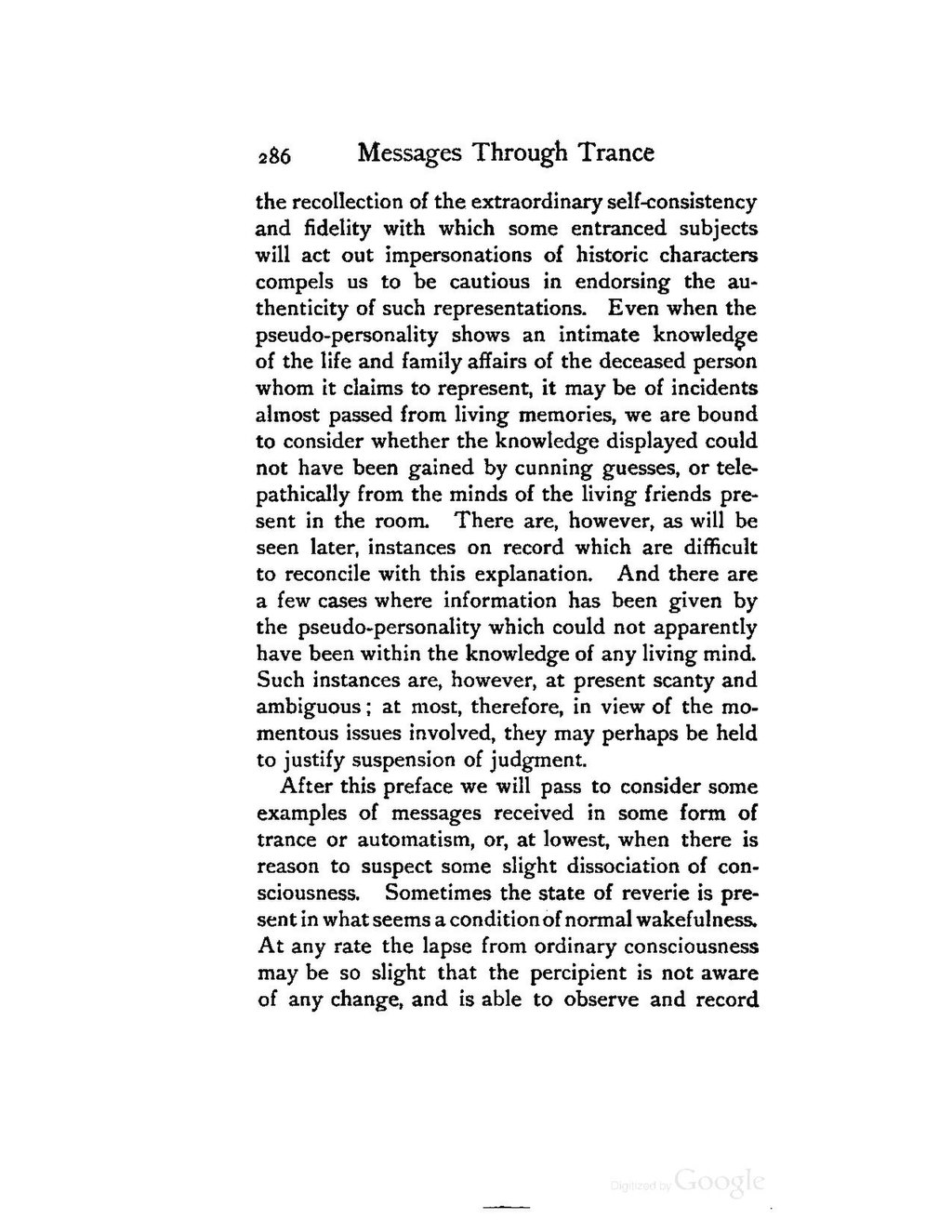the recollection of the extraordinary self-consistency and fidelity with which some entranced subjects will act out impersonations of historic characters compels us to be cautious in endorsing the authenticity of such representations. Even when the pseudo-personality shows an intimate knowledge of the life and family affairs of the deceased person whom it claims to represent, it may be of incidents almost passed from living memories, we are bound to consider whether the knowledge displayed could not have been gained by cunning guesses, or telepathically from the minds of the living friends present in the room. There are, however, as will be seen later, instances on record which are difficult to reconcile with this explanation. And there are a few cases where information has been given by the pseudo-personality which could not apparently have been within the knowledge of any living mind. Such instances are, however, at present scanty and ambiguous; at most, therefore, in view of the momentous issues involved, they may perhaps be held to justify suspension of judgment.
After this preface we will pass to consider some examples of messages received in some form of trance or automatism, or, at lowest, when there is reason to suspect some slight dissociation of consciousness. Sometimes the state of reverie is present in what seems a condition of normal wakefulness. At any rate the lapse from ordinary consciousness may be so slight that the percipient is not aware of any change, and is able to observe and record

